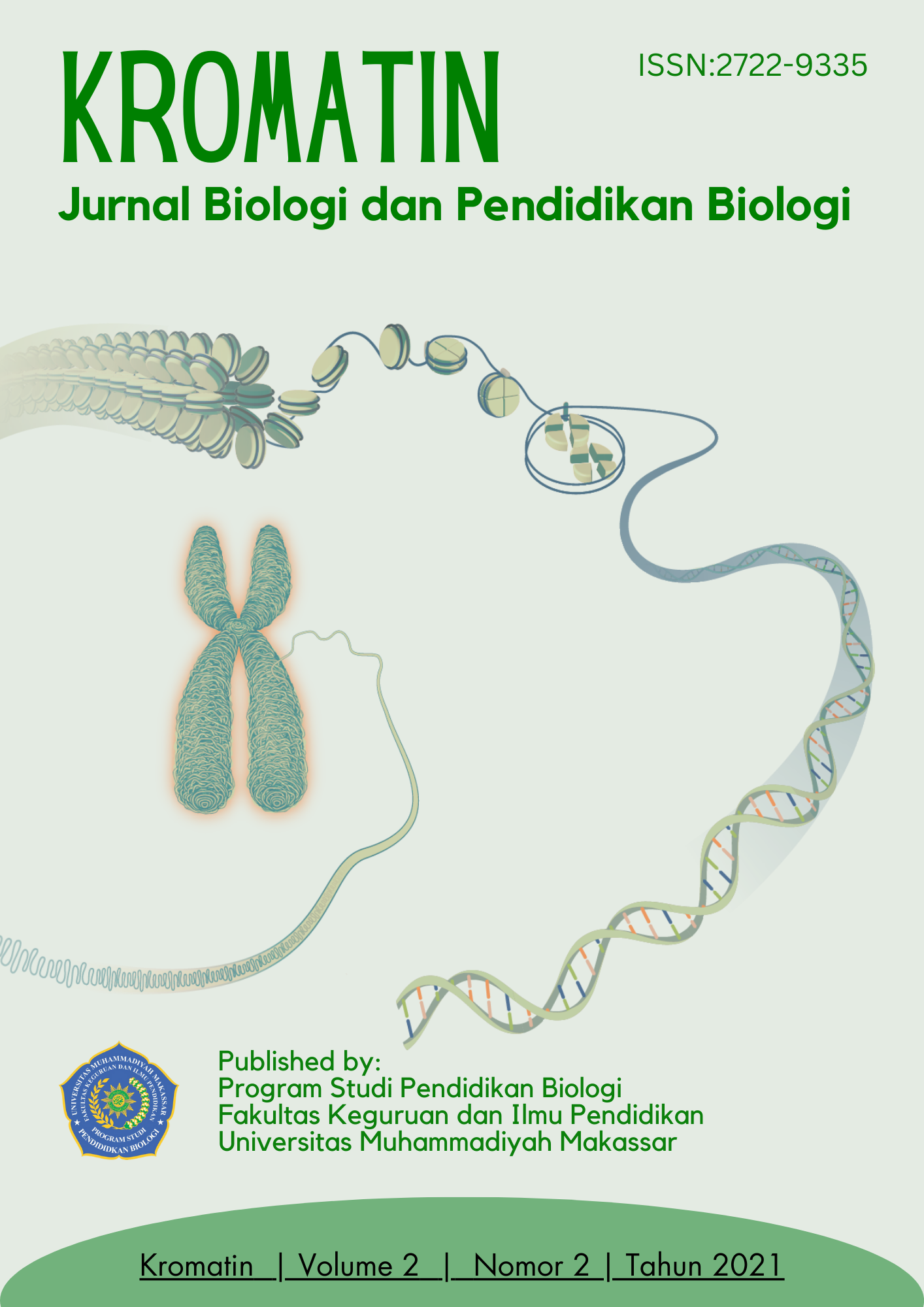Penerapan Model Pembelajaran Problem Based Learning (PBL) Dalam Meningkatkan Hasil Belajar Mahasiswa Pada Mata Kuliah Belajar Dan Pembelajaran
DOI: https://doi.org/10.26618/gtfbym82
Abstract
This study aims to determine the application of the Problem Based Learning (PBL) learning model to student learning outcomes in learning and learning subjects. This research was conducted on students of the Biology Education study program at FKIP Muhammadiyah University of Maluku totaling 21 students, consisting of 6 males and 15 females. as an initial reflection to carry out the second cycle. The second cycle aims to determine the improvement in the implementation of the teaching and learning process based on the reflection of the first cycle. This classroom action research consists of four series activities carried out in each cycle consisting of planning (planning), action (acting), observation (observing), and reflection (reflection). These stages can be continued to the next cycle repeatedly until the problems encountered can be resolved/solved. Based on the results of the pre-test, post-test I and post-test II conducted and comparing them each cycle, it can be concluded that the application of the Problem Based Learning learning model in Learning and Learning courses can improve student learning outcomes. The results showed that the average score of student activity in the pre-cycle I was 51.4%, the average increase in the first cycle was 57.4%, while for student learning outcomes in the first cycle, the average was 57.4%, there was an increase in the first cycle. cycle II to 70.7%. Based on the results of these studies, it is recommended to apply the model (PBL) as an alternative learning to improve student learning outcomes. Keywords: PBL, Learning OutcomesReferences
Kharida, L.A., Rusilowati, A., & Pratiknyo, K. (2009). Penerapan Model Pembelajaran Berbasis Masalah Untuk Peningkatan Hasil Belajar Siswa Pada Pokok Bahasan Elastisitas Bahan. Jurnal. Pendidikan Fisika Indonesia. 8(2):42-47
Kokom Komalasari, Pembelajaran Kontekstual : Konsep Dan Aplikasi (Bandung: Refika Aditama, 2013), hal. 59
Mashudi, dkk, 2019Desain Model Pembelajaran Inovatif Berbasis Kontruktivisme (Kajian Teoritis Dan Praktis) (Tulungagung: STAIN Tulungagung Press, 2013), hal. 90-91.
Nugroho, A. A., & Hanik, N. R. (2015). Implementasi Outdoor Learning untuk Meningkatkan Hasil Belajar Kognitif Mahasiswa pada Mata Kuliah Sistematika Tumbuhan Tinggi. Bioedukasi: Jurnal Pendidikan Biologi, 9(1), 41-44.
Nurfidah, Evi Rosdiyanti, Noni Antika Khairunnisah. 2022. Penerapan Model Pembelajaran Problem Based Learning Untuk Meningkatkan Aktivitas Dan Hasil Belajar Mahasiswa Program Studi Pendidikan Bahasa Dan Sastra Indonesia STKIP Harapan Bima. Jurnal Ilmiah Mandala Education (JIME). Vol. 8, No. 2.
Paul Eggen & Don Kauchak, Strategi Dan Model Pembelajaran (Mengajarkan Konten dan Keterampilan Berpikir, Ed. 6) (Jakarta: Indeks, 2012), hal. 307
Soimin, Aris. (2014). 68 model pembelajaran inovatif dalam kurikulum 2103. Yogyakarta : Ar ruzz media.
Sudarisman. (2015). Memahami Hakikat dan Karakteristik Pembelajaran Biologi Dalam Upaya Menjawab.
Wulandari, B. (2013). pengaruh problem based learning terhadap hasil belajar ditinjau dari motivasi belajar PCK di SMK. Jurnal Pendidikan Vokasi, 3(2):179-191
Downloads
Published
Issue
Section
License
Authors who publish with this journal agree to the following terms:
1. Authors retain copyright and grant the journal right of first publication with the work simultaneously licensed under a Creative Commons Attribution 4.0 Internasional License that allows others to share the work with an acknowledgement of the work's authorship and initial publication in this journal.
2. Authors are able to enter into separate, additional contractual arrangements for the non-exclusive distribution of the journal's published version of the work (e.g., post it to an institutional repository or publish it in a book), with an acknowledgement of its initial publication in this journal.
3. Authors are permitted and encouraged to post their work online (e.g., in institutional repositories or on their website) prior to and during the submission process, as it can lead to productive exchanges, as well as earlier and greater citation of published work.
Licence:
Authors are free to:
1. Share: Copy and redistribute the material in any medium or format
2. Adapt: Remix, transform, and build upon the material for any purpose, even commercially.
The licensor cannot revoke these freedoms as long as the authors follow the license terms, which include the following:
1. Attribution: Authors must give appropriate credit, provide a link to the license, and indicate if changes were made. Authors may do so in any reasonable manner, but not in any way that suggests the licensor endorses the authors or authors’ use.
2. No additional restrictions: Authors may not apply legal terms or technological measures that legally restrict others from doing anything the license permits.
This work is licensed under a licensed under a Creative Commons Attribution 4.0 Internasional License/ CC BY 4.0.



